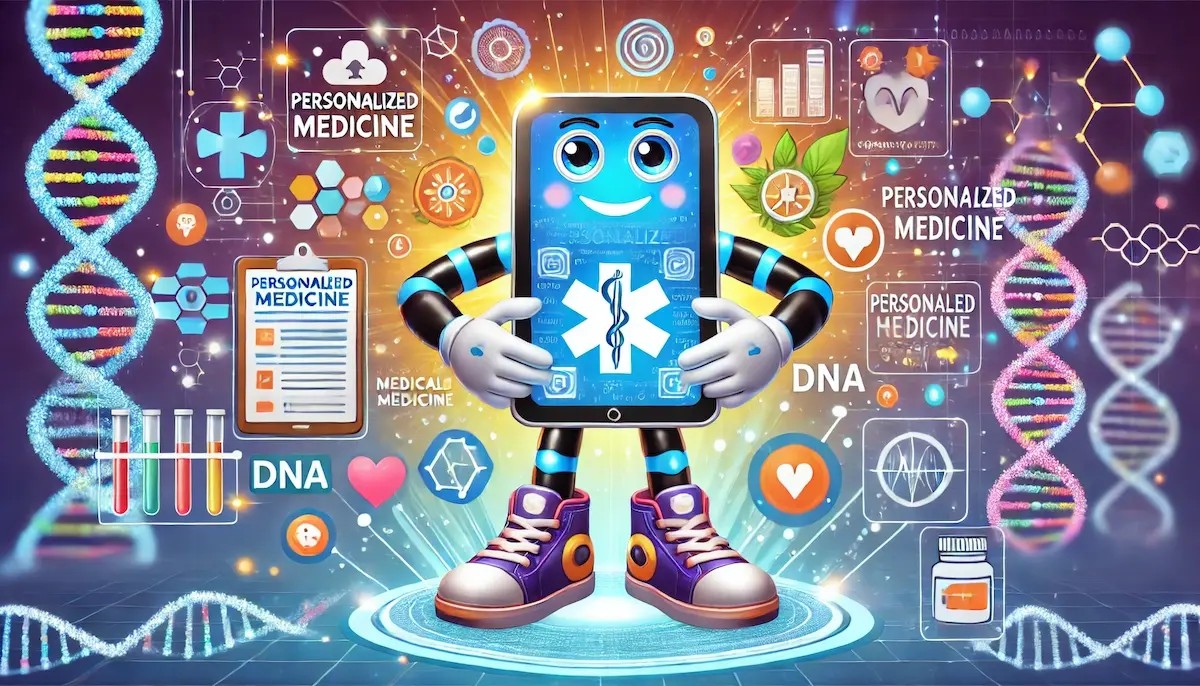Personalized medicine, also known as precision medicine, represents a transformative approach to healthcare. It tailors medical treatment to the individual characteristics of each patient, considering genetic, environmental, and lifestyle factors. This method aims to improve patient outcomes by customizing healthcare strategies that best suit each person’s unique needs.
What is Personalized Medicine?
Personalized medicine involves using detailed information about a patient’s genetic makeup, proteins, and environmental influences to diagnose and treat disease. Unlike traditional medicine, which often adopts a one-size-fits-all approach, personalized medicine recognizes that each patient’s disease may differ significantly, even if it appears similar on the surface.
Key Components of Personalized Medicine
Genetic Profiling
One of the cornerstones of personalized medicine is genetic profiling. By analyzing a patient’s genes, healthcare providers can identify specific genetic variations that influence how a person responds to medications, their risk of developing certain diseases, and the most effective treatment strategies.
Biomarkers
Biomarkers are measurable indicators of a biological condition or state. In personalized medicine, biomarkers are used to identify the presence or risk of disease, monitor disease progression, and assess responses to treatment. These can be genes, proteins, or other molecules found in blood or tissues.
Pharmacogenomics
Pharmacogenomics studies how genes affect a person’s response to drugs. This field helps in selecting the right medication and dosage for each patient, minimizing the risk of adverse drug reactions and increasing the efficacy of treatments. For example, pharmacogenomic testing can help determine whether a patient will benefit from a particular cancer drug.
Advanced Diagnostics
Personalized medicine relies on advanced diagnostic techniques, including genomic sequencing, molecular imaging, and high-throughput screening. These technologies enable the precise detection and characterization of diseases, facilitating early diagnosis and targeted treatment.
Benefits of Personalized Medicine
Improved Treatment Outcomes
Personalized medicine can significantly improve treatment outcomes by tailoring therapies to the individual’s genetic profile and disease characteristics. This approach ensures that patients receive the most effective and appropriate treatments, reducing the trial-and-error process often associated with traditional medicine.
Reduced Side Effects
By considering genetic and other personal factors, personalized medicine can minimize adverse drug reactions. Patients are less likely to experience side effects because their treatments are specifically chosen to align with their unique biological makeup.
Prevention and Early Detection
Personalized medicine can also play a crucial role in disease prevention and early detection. Genetic testing can identify individuals at high risk for certain conditions, enabling proactive measures to reduce their risk. Early detection of diseases through advanced diagnostics can lead to more effective and less invasive treatments.
Cost-Effectiveness
Although personalized medicine can involve higher upfront costs for genetic testing and advanced diagnostics, it can be more cost-effective in the long run. By improving treatment efficacy and reducing adverse reactions, personalized medicine can lower overall healthcare costs and enhance quality of life for patients.
Challenges of Personalized Medicine
Data Privacy and Security
The use of genetic and personal health data in personalized medicine raises significant privacy and security concerns. Protecting this sensitive information from unauthorized access is critical to maintaining patient trust and confidentiality.
Accessibility and Equity
Access to personalized medicine can be limited by factors such as cost, availability of technology, and healthcare infrastructure. Ensuring that these advanced medical approaches are accessible to all patients, regardless of socioeconomic status, is a significant challenge.
Ethical and Legal Issues
Personalized medicine involves complex ethical and legal considerations, including issues related to genetic testing, informed consent, and potential genetic discrimination. Clear guidelines and regulations are necessary to address these concerns and protect patients’ rights.
The Future of Personalized Medicine
The future of personalized medicine is bright, with ongoing advancements in genomics, bioinformatics, and medical technology driving its growth. As research continues to uncover the intricate relationships between genes, environment, and health, personalized medicine will become increasingly precise and effective, transforming the way we approach healthcare.
Blockfine thanks you for reading and hopes you found this article helpful.
